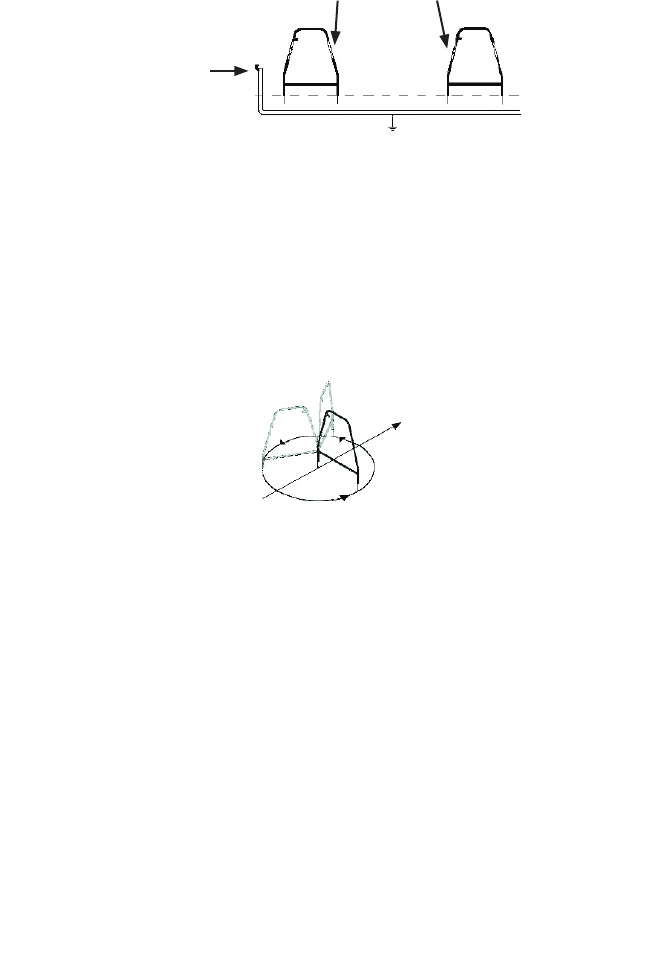
78-8130-6151-8-E 27
7. Continue along the cable/pipe path, re-inserting the frame probes every few steps
while watching the receiver bar graphs. The bar graph on the receiver will fill
toward the right side of the screen (green), indicating that the fault is ahead of
the operator (in the direction of the green-banded leg of the 3M
™
Dynatel
™
Earth
Contact Frame).
Transmitter Signal
Green Band Red-and-White-Striped Band
8. When the bar graph fills toward the left (red-and-white-striped) side of the screen,
the fault has been passed and is now behind the operator. Move back, inserting the
frame every few inches, until the arrows alternate back to green. Mark the point
beneath the center of the frame. Turn the earth frame 90 degrees and insert into the
ground over the previously marked point. Move the earth frame to the left and right
(following the directions of the green and red arrows). When the arrows reverse a
third time, turn the frame 90 degrees again. Pinpoint the fault by moving the frame
in the direction of the green and red arrows. The fault is located beneath the center
of the frame when the arrows change from one side to the other this time.
Figure 2
9. To verify the fault location, insert the frame’s red-and-white-striped probe directly
on the spot identified above. Pivot the frame in a circle around the red-and-white-
striped leg re-inserting the green-banded leg in the ground every few degrees of the
circle (Figure 2). The arrow should always point toward the left (red) indicating that
the fault is directly below the red-and-white-striped leg.
10. After a fault is found and pinpointed, move the earth contact frame about one frame
width away from the fault and insert it in the ground with the green-banded leg
towards the fault. Compare the numeric signal level with the fault level reference
indicated in the lower left box labeled REF. If the reading is within 12 dB of the
reference, the operator has found the major fault. If the fault reading does not fall
within 12 db of the reference reading, multiple faults may exist. The signal level
of this secondary fault can be saved by pressing Fault 1 [SK] or Fault 2 [SK]. The
fault with the highest reading will be the primary fault.


















